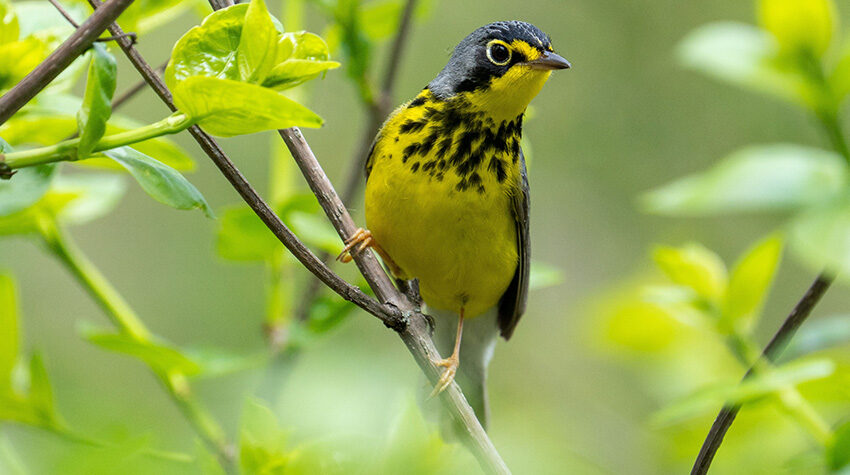
June 18, 2023Animal Law & Policy ClinicStudents Call for Harvard to Prevent the Unnecessary Deaths of Birds on Campus
On behalf of several leading experts, Harvard Law School’s Animal Law & Policy Clinic today called on Harvard University to take action to incorporate bird safe measures into its Sustainability Building Standards to reduce deaths by birds colliding with windows.
On behalf of several leading experts, Harvard Law School’s Animal Law & Policy Clinic have called on Harvard University to take action to incorporate bird safe measures into its Sustainability Building Standards to reduce deaths by birds colliding with windows. In a detailed submission sent to Harvard’s Office for Sustainability, the Clinic and experts also call for the school to commit to formal monitoring of existing bird hazards on campus, with an eye toward retrofitting those buildings that pose the biggest threat.
As many as 1 billion birds die in North America every year from collisions with glass buildings, including migrating songbirds and other species that are already imperiled by human-caused threats. As a result, other universities, including Yale, Princeton, and Cornell, already have undertaken efforts to make their buildings safe for birds based on existing solutions that can reduce bird collisions by as much as 94%. Harvard’s campus is located directly on the Atlantic Flyway, where millions of birds migrate each year. As the submission documents, there are now several different models of bird-safe windows that can be used to mitigate this damage.
“According to the U.S. Fish and Wildlife Service, glass windows are one of the deadliest human threats to birds in the United States. North American bird populations have already experienced a dramatic drop of almost one third since 1970, and we can no longer afford to ignore such a readily preventable problem,” says HLS student Allyson Gambardella who drafted the Clinic’s submission along with recent HLS graduate Rachel Landry JD ‘23.
Experts from across Harvard’s campus, including Dr. Scott V. Edwards, Alexander Agassiz Professor of Zoology and Curator of Ornithology in the Museum of Comparative Zoology at Harvard University; Nina-Marie Lister, Visiting Professor of Landscape Architecture at Harvard University’s Graduate School of Design joined the submission, as did the American Bird Conservancy—a national group leading this effort across the nation.
“Bird-building collisions are a big problem and there are straightforward solutions, explains Jeremiah Scanlan, the Harvard Law student who brought this matter to the attention of the Clinic and is also one of the submission signatories. “Cities and universities across the country are already implementing these solutions, so there’s no reason Harvard can’t also be a leader in preventing deaths of these amazing creatures.”
Scanlan’s love of birds is a big part of why he previously took the Animal Law & Policy Clinic. “I’m so excited and grateful that my fellow students, Allyson and Rachel, have turned this idea into a fantastic proposal,” he says.
The adoption of a bird-safe policy aligns with Harvard University’s Sustainability Action plan, the submission explains. In that plan, President Bacow emphasized the University’s “responsibility to act – and to do so with urgency” to “[e]nsure a sustainable planet and protect[] it for future generations[.]” The Message from the Presidential Committee on Sustainability also directly acknowledges the urgency of the broader biodiversity crisis: “We must now consider the multiple overlapping and interconnected crises we all face – from intensifying climate change to significant biodiversity loss[.]”
With a billion birds being lost to building collisions each year, taking this step to ensure the use of bird-safe glass in the construction of new windows would be a major step in the right direction to stem the tide of further biodiversity loss on Harvard’s campus.
The submission was reported on by The Harvard Crimson.
